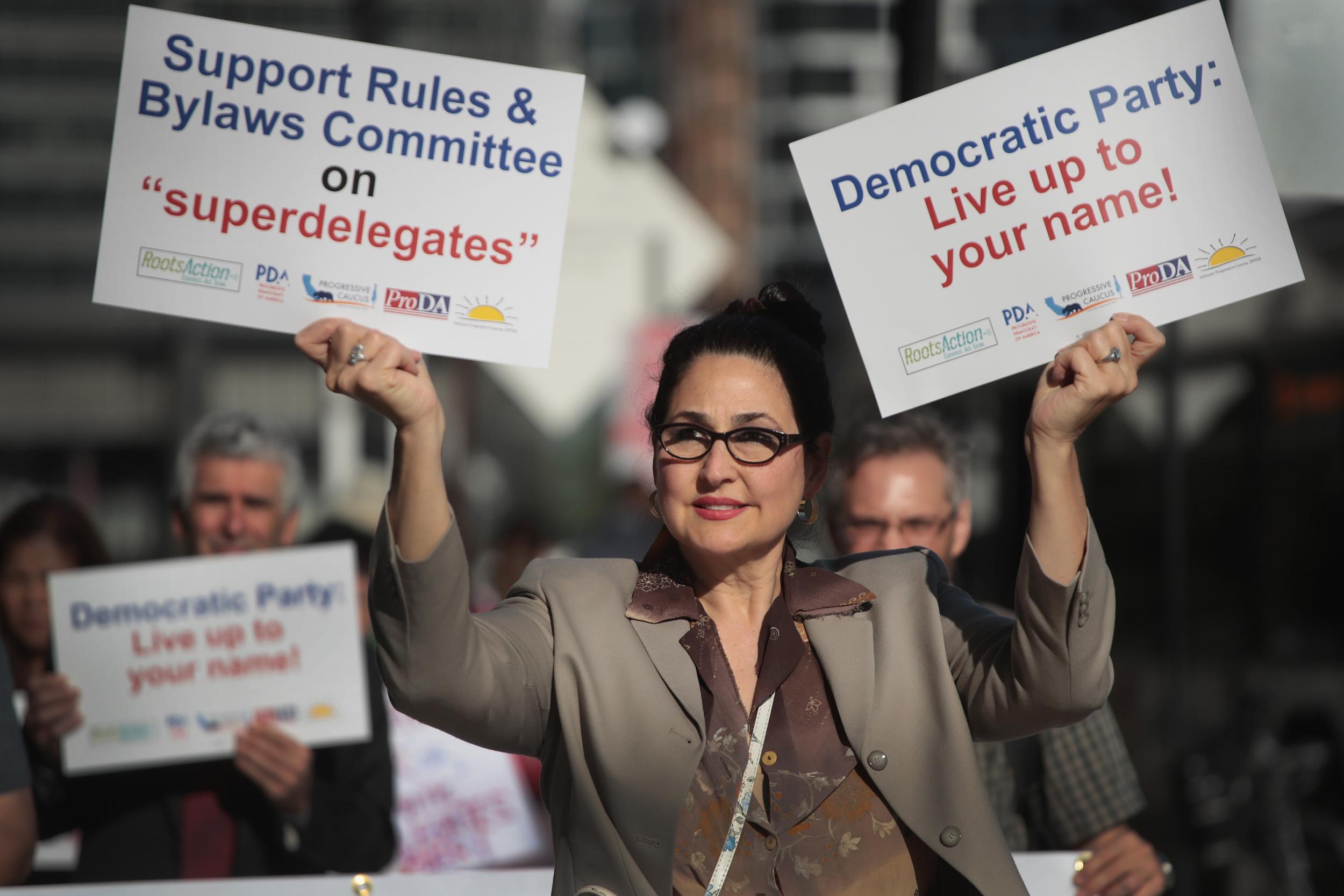Democrats vote to limit power of superdelegates in presidential nominations
Historic change could have significant effect on 2020 presidential race

Your support helps us to tell the story
From reproductive rights to climate change to Big Tech, The Independent is on the ground when the story is developing. Whether it's investigating the financials of Elon Musk's pro-Trump PAC or producing our latest documentary, 'The A Word', which shines a light on the American women fighting for reproductive rights, we know how important it is to parse out the facts from the messaging.
At such a critical moment in US history, we need reporters on the ground. Your donation allows us to keep sending journalists to speak to both sides of the story.
The Independent is trusted by Americans across the entire political spectrum. And unlike many other quality news outlets, we choose not to lock Americans out of our reporting and analysis with paywalls. We believe quality journalism should be available to everyone, paid for by those who can afford it.
Your support makes all the difference.The Democratic National Committee (DNC) has voted to strip an elite group of party insiders of much of their nominating power – a change that could have significant repercussions on the 2020 presidential race.
Attendees at the DNC’s annual summer meeting in Chicago this weekend voted to dramatically reduce the powers given to hundreds of DNC members, elected officials, and party leaders known as “superdelegates”.
The approximately 700 superdelegates will be ineligible to vote in first-round ballots for the party’s presidential nominee at the 2020 nominating convention. Instead, they will be called in to vote only in the unlikely event that there is a contested convention and a second-round ballot is required.
“Today is a historic day for our party,” tweeted DNC Chairman Tom Perez, a vocal advocate of the changes. “We reaffirmed one of our core beliefs as Democrats: That our democracy works best when every voice is heard. The new DNC is doing things differently.”
The debate over superdelegates started during the 2016 race, when supporters of candidate Bernie Sanders felt the party elite had favoured his competitor, Hillary Clinton, over the Vermont senator.
The majority of delegates at the party’s nominating conventions are so-called pledged delegates, who vote in accordance with the candidate’s performance in their states’ primary elections. Superdelegates, however, can vote for any candidate they choose.
In 2016, these voters – who made up approximately 15 per cent of the total delegate pool – overwhelmingly favoured Ms Clinton.
The call to strip superdelegates of their power was largely pushed through by Mr Perez, Mr Sanders, and many of the senator’s supporters. Mr Sanders called the vote an “important step forward” in a statement on Saturday.
But the changes were met with resistances from some powerful party leaders like former DNC chairs Don Fowler and Donna Brazile. Saturday’s meeting on the proposed changes even resulted in some raised voices, according to reporters in the room.
According to BuzzFeed News, when Mr Fowler claimed that eliminating superdelegates would disenfranchise black, Latino, and LGBT+ members of the group, members in the back of the audience yelled back: “Lies!”
In the end, however, the final vote was heralded by a standing ovation from many of the delegates.
“I was sceptical of this proposal, but I’m a team player, and the most important thing we can do is elect Democrats this fall and in 2020,” William Owens, a DNC member from Tennessee, told NBC. “I’m trying to say this without crying.”
The Associated Press contributed to this report
Join our commenting forum
Join thought-provoking conversations, follow other Independent readers and see their replies
Comments